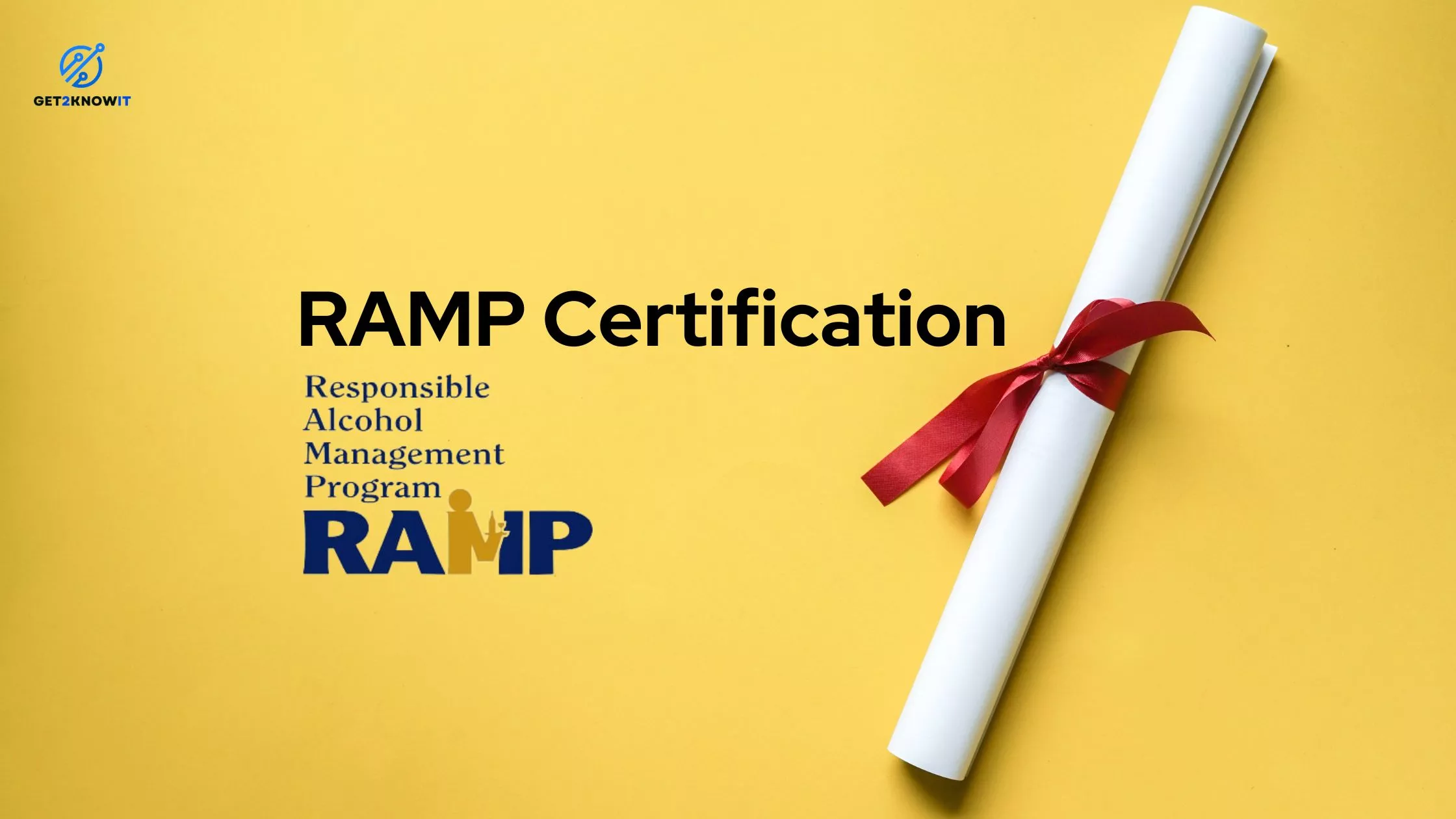Responsible Alcohol Management is a critical aspect of ensuring public safety and compliance within the hospitality industry, particularly in establishments that serve alcoholic beverages. At the forefront of this initiative is the Responsible Alcohol Management Program (RAMP), a voluntary certification established by Act 141 of 2000 in Pennsylvania.
The role of RAMP Certification is pivotal in fostering a culture of responsible alcohol service, emphasizing the importance of education and training for alcohol servers and sellers. This certification, approved by the Pennsylvania Liquor Control Board (PLCB), sets rigorous standards to enhance the skills and awareness of individuals involved in alcohol service. In this context, we will explore the components of RAMP Certification, its significance, and the broader impact it has on promoting safe and responsible alcohol practices within licensed establishments.
Historical Context on RAMP Certification
Act 141 of 2000: Establishment of RAMP
Act 141 of 2000, initiated by the Pennsylvania Legislature, forms the basis of the Responsible Alcohol Management Program (RAMP). It established a certification program to educate and train those involved in selling and serving alcohol, emphasizing responsible practices for public safety and regulatory compliance.
Evolution of RAMP Over the Years
Since its establishment, RAMP has undergone significant evolution, adapting to the changing landscape of alcohol service and incorporating advancements in education and training. Originally conceived as a voluntary certification program, RAMP has expanded its influence and participation over the years. The program has embraced technological advancements, transitioning from traditional classroom settings to online platforms to make education more accessible for alcohol servers and sellers. These adaptations reflect RAMP’s commitment to staying relevant and effective in promoting responsible alcohol management practices.
Components of RAMP Certification
RAMP Certification, established by Act 141 of 2000 in Pennsylvania, consists of several key components aimed at promoting responsible alcohol service:
- Owner/Manager Training:
- At least one owner or the PLCB-approved manager must complete specialized training to qualify for RAMP certification.
- Server/Seller Training:
- Licensees and their staff are required to undergo training related to responsible alcohol service. This component focuses on educating servers and sellers on best practices.
- New Employee Orientation:
- RAMP includes an orientation component for new employees, ensuring that all staff members are well-versed in responsible alcohol service practices.
- Signage:
- Licensees are obligated to display appropriate signage related to responsible alcohol service on their premises, creating awareness among patrons.
- Affidavit Request:
- A component introduced by Act 26 of 2006, which requires licensees to complete an affidavit request for RAMP certification.
Benefits and Incentives of RAMP Certification
RAMP Certification offers various benefits and incentives for licensed alcohol establishments, contributing to responsible alcohol management. Here are the key advantages:
- Legal Compliance:
- RAMP Certification ensures compliance with legal requirements related to responsible alcohol service, demonstrating a commitment to following regulations.
- Incentive Programs:
- The program provides incentives for licensees who actively participate and successfully complete the five RAMP components. Act 26 of 2006 requires licensees to complete an affidavit request for RAMP certification, emphasizing proactive engagement.

Image Credit: Ramp-certification.com
- The program provides incentives for licensees who actively participate and successfully complete the five RAMP components. Act 26 of 2006 requires licensees to complete an affidavit request for RAMP certification, emphasizing proactive engagement.
- Flexible Training Options:
- RAMP training is designed to be convenient, allowing participants to complete the certification at their own pace. Online courses are available, offering flexibility for individuals to learn on various devices.
- Career Advancement:
- Individuals in the alcohol service industry can boost their careers by obtaining RAMP Certification. Responsible Alcohol Vendor Programs, associated with RAMP, reward licensees who take positive steps to prevent alcohol-related issues.
- Financial Incentives for Taxi Drivers:
- In specific contexts, such as the taxi industry, RAMP Certification may offer financial incentives. For example, Ramp Taxi drivers meeting wheelchair pickup goals can benefit from certain incentives.
Implementation and Adoption of RAMP Certification
The implementation and adoption of RAMP (Responsible Alcohol Management Program) certification involve a systematic process to ensure that establishments adhere to responsible alcohol service practices. Here are general steps and considerations for implementing and adopting RAMP certification:
Research State Regulations:
– Understand the specific RAMP certification requirements and guidelines set by the state regulatory agency. Familiarize yourself with the laws and regulations governing alcohol service in your jurisdiction.
Identify Responsible Staff Members:
– Designate and train key staff members who will be responsible for overseeing the implementation of RAMP policies within the establishment. This may include managers, servers, and other relevant personnel.
Attend RAMP Training:
– Ensure that designated staff members attend the required RAMP training programs. Training should cover topics such as checking identification, understanding alcohol laws, recognizing signs of intoxication, and implementing responsible beverage service practices.
Develop and Implement Policies:
– Work with staff to develop and implement policies and procedures that align with RAMP requirements. This may include guidelines for checking IDs, monitoring alcohol consumption, and refusing service to intoxicated individuals.
Communicate Policies to Staff:
– Clearly communicate RAMP policies to all staff members and ensure that they understand the importance of responsible alcohol service. Regularly update and reinforce these policies through staff meetings and training sessions.
Integrate RAMP Practices into Operations:
– Integrate RAMP practices seamlessly into daily operations. This may involve incorporating ID checks into the ordering process, implementing drink tracking systems, and training staff to identify signs of intoxication.
Regular Training and Refresher Courses:
– Schedule regular training sessions and refresher courses for staff to keep them informed about any updates to RAMP guidelines or changes in state regulations. Continuous education is crucial for maintaining compliance.
Maintain Records:
– Keep accurate records of staff training, certifications, and any incidents related to alcohol service. Maintaining detailed records can be valuable for demonstrating compliance during inspections or audits.
Monitor and Evaluate Compliance:
– Regularly monitor and evaluate compliance with RAMP policies. This may involve self-assessment, internal audits, or third-party assessments to identify areas for improvement and ensure ongoing adherence to responsible service practices.
Promote Responsible Drinking:
– Actively promote responsible drinking within your establishment. This may include displaying signage, offering non-alcoholic beverage options, and training staff to engage with customers about responsible consumption.
Engage with the Community:
– Participate in community initiatives and events that promote responsible alcohol consumption. Building positive relationships with the community can enhance your establishment’s reputation and contribute to responsible drinking practices.
Seek Certification and Renewal:
– Once your establishment has implemented RAMP practices, submit the necessary application for RAMP certification to the state regulatory agency. Ensure timely renewal of certifications and stay informed about any changes in certification requirements.
By following these steps and maintaining a commitment to responsible alcohol service, establishments can effectively implement and adopt RAMP certification, contributing to safer and more responsible drinking environments. Remember to stay informed about any updates to state regulations and adapt your practices accordingly.




